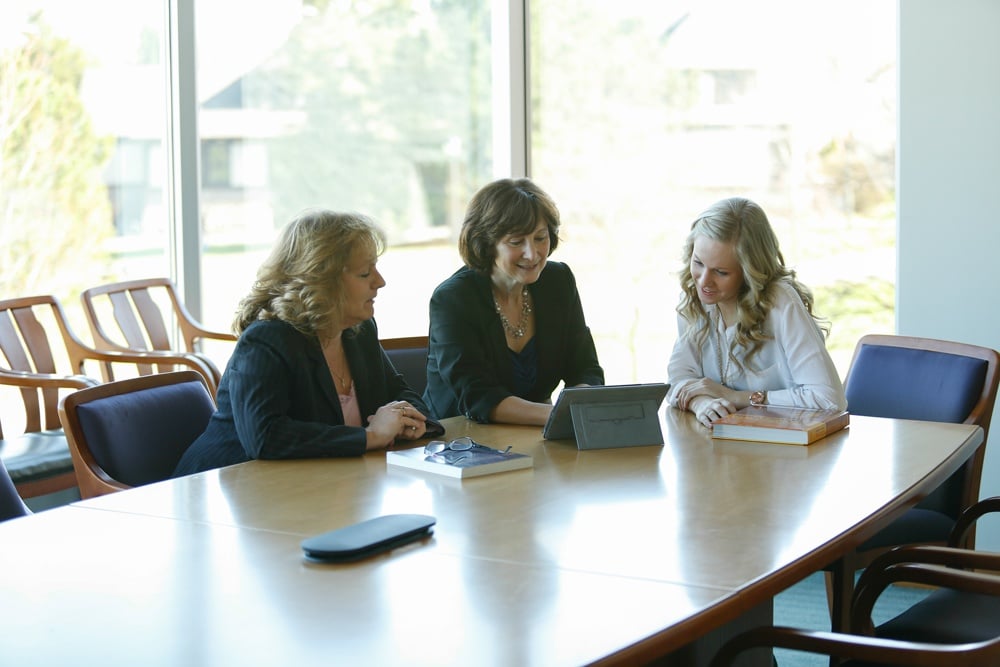Have you ever stopped to wonder why you make the decisions you do? For example, why did I say “no” to a girls’ weekend and stay home with your family instead? Why do I choose to tell the truth even if it leads to repercussions? Why do I put so much effort into cleaning the house and making sure things are perfect before our guests arrive instead of catching up on Netflix? These situations are personal to me, and you may not be able to relate. However, I'm sure, like me, you give little thought as to how and why your final decisions are made. Through a simple exercise, called a values audit, and a deck of 160 cards, each containing a value, I realized that my decisions, like the ones above, were made from something deep within me, something I haven’t often thought about or even talked about until recently.
Discovering your Values and their effect
I found that these deep things within me are my values. They help me determine how to invest my time, money, energy, and guide me on how to act, speak, and make choices. They are the reason I behave and act the way I do. Through the values exercise assigned in Strategic Leadership, I identified that family, accountability, honesty, faith, giving, hospitality, planning, and reliability make up my core values. Core values most significantly drive an individual or organization's passions, pursuits, actions, habits, and fulfillment. This helps make sense of why I made the choices above and why many of my decisions center around these values.
Identifying my values has also helped me understand why I get upset or feel uncomfortable in certain situations. When I get these feelings, decisions were likely made I disagree with, or people are acting in ways that exhibit values that I don’t rank highly. In fact, bottom ranking values can cause conflict or agitation, and it's advisable to be aware of this. Certain people, groups, and situations may need to be avoided. Going back to my beginning examples, I can’t stand that my husband would rather relax and throw things together instead of prepare for our guests’ arrival. Because hospitality is likely on the bottom of his values list and relaxation much higher and vice versa for my rating, our differences in value often cause conflict – especially during the holidays. Knowing ahead of time that we have these differences allows us to set our expectations accordingly and communicate our feelings to avoid a huge blow up.
What does any of this have to do with leadership?
It's essential that as leaders, we understand the strength of one’s values because it can make us better leaders. To further explain values, Kouzes and Posner (2017) identify them as the beliefs, standards, ethics, and ideals that drive a person (p. 48). As leaders, knowing the values of ourselves, our teammates, and our organization will not only help us understand why things happen the way that they do, but will also help us align with groups where we share common values. They can also help us identify groups and situations that we might want to avoid or enter with caution.
Before any of this can be done, we as leaders need to know our own personal values, and it can be accomplished through an exercise like the one I recently took part in. Kouzes and Posner (2017) state that only at that point can you become a genuine and credible leader that can put your actions behind your words (p. 49). It's also important to realize that we cannot stand behind someone else's values and express them through our actions and words (p. 58). This means that just because other leaders in the organization have individual values and act in certain ways, we shouldn’t take these values as our own and mimic their actions and behaviors. If this is done, we as leaders will eventually feel the internal conflict of our values trying to push through. Additionally, people on the outside may be able to see this and question our authority and credibility.
Aligning personal values with organizational values
Once leaders are aware of their core values, they need to determine the organization's core values. Organizational core values serve the same purpose as individual core values. They guide and drive the organization's team members to decide and act in ways that align with the organization's values. I was fortunate enough to be part of The Horizon Group's core value development nearly six years ago. It was a wonderful experience, and because I was part of the process, I’m very inclined to live and breathe these values every day. These core values continue to be used in employee reviews and interviews. We even give each other “team member shout-outs” when we have noticed someone exemplifying these values through interaction with other teammates or clients.
Determining your organization's values
Not every organization will have the core values formally established, and you may not be in a position to encourage their development. However, if you’ve been a part of an organization for quite some time, you probably have a good idea of its values. Still unsure? Start observing interactions between employees and clients, other team members, and pay attention to how leaders treat their subordinates. These interactions, as well as, how organizational leaders react to certain situations and where their focus and concerns tend to be can help bring light to company values. Recently in my organization, a team member needed some flexibility in her work schedule due to COVID-19 and the hybrid school model. Several teammates advocated for this team member to work from home to be with her son while everyone else picked up her slack, if needed. These actions, and the acceptability of leadership to allow this setup, show that The Horizon Group values family even though it isn't even one of our listed core values.
Remembering values can change
Lastly, as a leader, continuously reflect on making sure your values are still in alignment. As new people arrive into organizations, and as leadership changes, company values may transform over time. It's essential to identify these changes and bring them to the forefront of discussion. If half the group follows one set of values and the other half another set, there will most definitely be internal conflict, and people will not be rowing in the same direction. Personal values may change over time as well, mainly as major life circumstances occur. For example, the birth of a first child or a health situation can significantly change one's perspective on life. A reassessment of personal values and how they align with the organization's values may be necessary. If they no longer do, it may be time to consider making a change and possibly leaving to find an organization that aligns with your new personal values more closely.
Never compromise your values and remain true to you! None of us were created equally, and not every organization will be a perfect fit for everyone. If you haven't done so already, I highly encourage you to determine your core values and think about how they align with your current relationships and affiliations. Remember, we only get one chance at life, and the more effort we put into aligning with people and organizations that share our values, the more enjoyable and stress-free the experience will be.
References
Kouzez, M. J., & Posner, B. Z. (2017). The Leadership Challenge. Hoboken, New Jersey: John Wiley & Sons, Inc.











